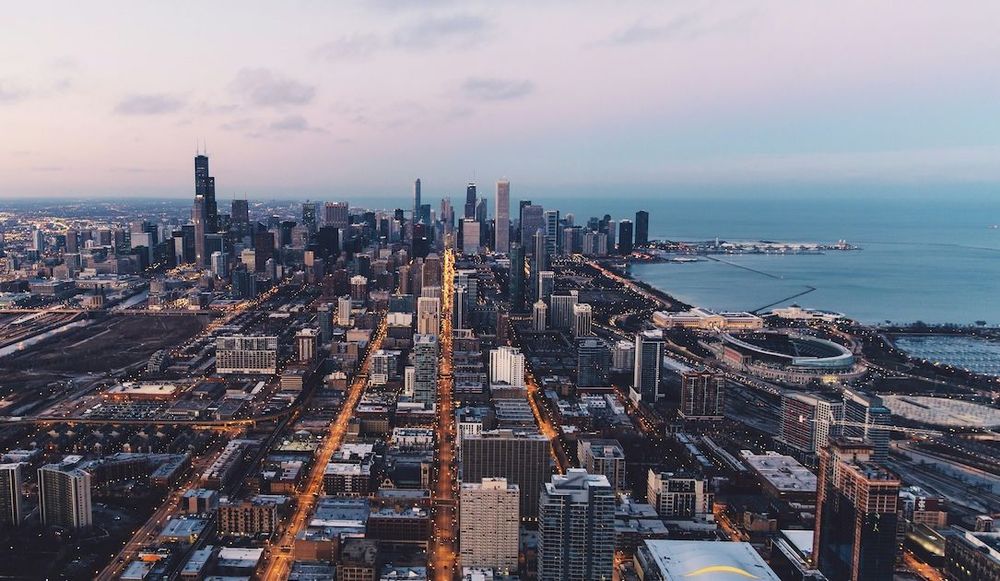Chicago stops using controversial ShotSpotter gunshot detection system
The Chicago Police Department has stopped using a controversial gunshot detection system that privacy advocates have long decried for leading to a vastly disproportionate number of police stops in poor and minority neighborhoods.
The surveillance technology, known as ShotSpotter, relies on artificial intelligence algorithms and microphones to detect gunshots, but critics say it often picks up other loud noises instead, leading to over-policing in the majority Black neighborhoods where it is primarily installed.
The canceled contract in Chicago — the largest city to abandon its use in recent memory — followed an intense standoff between Mayor Brandon Johnson and the City Council there, local news reports said Monday.
Johnson had vowed to discontinue ShotSpotter during his mayoral campaign last year, saying it causes a disproportionate number of so-called stop and frisks in poor minority neighborhoods, according to a Chicago TV station.
Last week the mayor also suggested the ShotSpotter system is ineffective, saying the city has spent “essentially $100 million on what essentially is walkie talkies on a stick.”
ShotSpotter is used in more than 160 cities nationwide, according to its manufacturer.
Familiar in Chicago’s Black neighborhoods
Chicago has deployed ShotSpotter since 2012, but dramatically expanded its use in 2017 when officials there rolled it out across large swaths of majority-minority and poor areas, targeting Black neighborhoods in particular.
“District wide” deployments were undertaken in two such neighborhoods. This July, the Chicago Metropolitan Agency for Planning released a report showing that as of 2022 one of those neighborhoods was 75% Black and the other 95% Black.
At least 25,580 ShotSpotter microphones are installed in cities nationwide and nearly 70 percent of neighborhood residents living in those communities outfitted with ShotSpotter are Black or Latino, according to a Wired report in February based on leaked documents from ShotSpotter’s notoriously secretive parent company SoundThinking.
The average household income in almost 75% of the neighborhoods covered in the document obtained by Wired hovers around $50,000 a year.
Civil rights abuses and inaccurate results
Audits in Chicago and New York have found the technology rarely leads to gun arrests.
Of 50,176 confirmed and dispatched ShotSpotter alerts the Chicago inspector general studied across 2020 and nearly half of 2021, only 9% were for a gun-related criminal offense, according to a report from the office.
An internal report produced by the Cook County State's Attorney's Office that leaked in February showed that ShotSpotter technology only leads to an arrest in 1% of shooting incidents and that most arrests sparked by ShotSpotter alerts are for probation violations, according to a local CBS affiliate.
A June audit performed by New York City’s comptroller found that ShotSpotter notifications only detected “confirmed shootings” 13 percent of the time.
SoundThinking did not respond to a request for comment, but posted a link to a Chicago media outlet’s report that it “pinpointed a mass shooting location and helped cops catch a suspect in a second shooting” over the weekend.
Last September, a leading privacy advocacy organization appealed to U.S. Attorney General Merrick Garland to ensure that no federal funds go to ShotSpotter or to at least investigate whether the technology is used in compliance with the law, arguing that its deployment appears to violate the Civil Rights Act of 1964.
“Acoustic gunshot detection tools have disparate impacts on majority-minority
neighborhoods, increasing police activity in neighborhoods where sensors are placed, perpetuating patterns of policing practices,” the petition from the Electronic Privacy Information Center (EPIC) said.
The petition also highlighted that the landmark civil rights law bars recipients of federal funds — in this case local police agencies — not only from discriminating intentionally, but also for using methods which “appear neutral but have a discriminatory effect on individuals because of their race, color, or national origin.”
Jeramie Scott, who directs the organization’s surveillance oversight project, said ShotSpotter infringes on the privacy of the poor and minority populations who are predominantly exposed to it.
“The result is undue surveillance and over-policing of marginalized communities while spending funds that could be spent on crime prevention programs instead,” Scott said.
“Shotspotter alerts prime police to expect dangerous situations which raises the risk of harm to communities that are often already subject to a disproportionate amount of police force,” Scott added.
Suzanne Smalley
is a reporter covering digital privacy, surveillance technologies and cybersecurity policy for The Record. She was previously a cybersecurity reporter at CyberScoop. Earlier in her career Suzanne covered the Boston Police Department for the Boston Globe and two presidential campaign cycles for Newsweek. She lives in Washington with her husband and three children.



